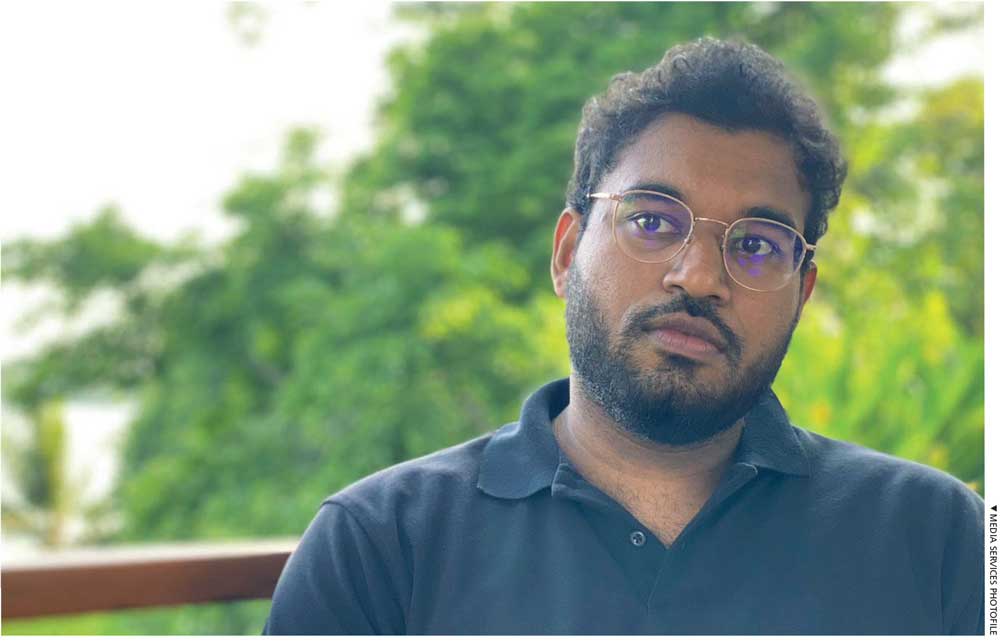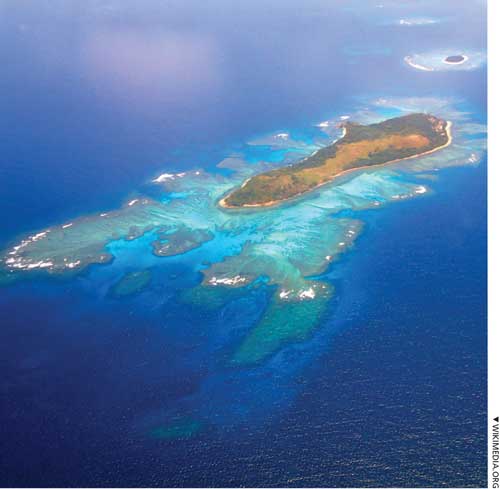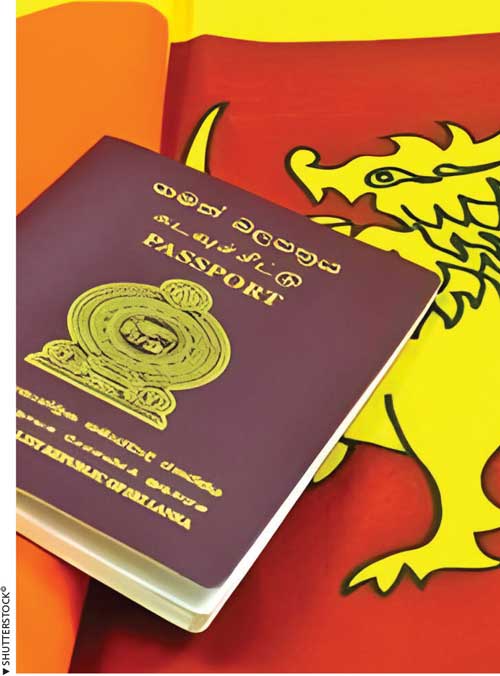Binura Seneviratne
Why populist solutions are high risk

Senior Economist at the Ministry of Finance of Tonga Binura Seneviratne has the distinction of being the first Overseas Development Institute (ODI) Fellow to serve in the country in decades. His appointment was part of the think tank’s fellowship scheme, which offers economists and statisticians opportunities to work as civil servants in low and middle income countries.
Following his passion for economics, politics and geopolitics, Seneviratne pursued degrees in economics and finance, and economic policy, at the University of York and Australian National University (ANU) respectively.
In addition, he is an Australia Awards Scholar, having completed a course in trade promotion and marketing at Griffith University.
In this exclusive interview, Seneviratne outlines the challenges that Sri Lanka faces in its pursuit of economic development and his assessment of the country’s progress in its economic reform journey, as well as his take on Tonga’s economic landscape.

Q: In your role as an Overseas Development Institute (ODI) Fellow at the Ministry of Finance in Tonga, what challenges and achievements have you experienced so far?
A: I’m serving as a Senior Economist for the Government of Tonga under the ODI Fellowship Scheme.
My primary focus is to assist in economic policy related matters, which include tasks such as formulating the budget strategy, analysing public-private partnerships (PPPs) and cultivating relationships with donor nations.
As the first ODI Fellow in Tonga in decades, my first month posed challenges as I adapted to life in the Pacific. Professionally, I navigated a distinct work culture, and established new connections with the donor community and higher government officials.
Despite these challenges, I find great satisfaction in working in Tonga, thanks to the exceptionally friendly locals and relaxed lifestyle.
Q: How has your background in economic policy research, academia, and practical fields such as banking and finance shaped your approach to policy-making?
A: My journey in economic policy began with an internship at the Ministry of Finance of Sri Lanka in 2015 where I gained firsthand insights into the challenges faced by policy makers.
My time at the Institute of Policy Studies (IPS) in Sri Lanka – where we conducted extensive economic policy research amid the country’s economic crisis – moulded my thought process in economic policy. This helped me understand the need for adaptive policy responses to dynamic challenges.
Q: In your opinion, what are the key factors influencing Sri Lanka’s economic development?
A: Several key factors play a vital role at this critical juncture.
Political stability lays the groundwork for a conducive environment, promoting investments and growth. Clear and transparent policies are essential for businesses and investors to operate with confidence. And openness to the global community fosters collaboration and trade, contributing to a dynamic and resilient economy.
Particularly crucial is maintaining fiscal stability in the medium term as the country re-stabilises itself.
The ongoing economic reform initiatives should continue and it’s imperative for stakeholders to guard against abrupt policy reversals, ensuring a consistent and predictable economic path.
Looking forward, sustaining the commitment to economic reforms across different government administrations is vital for Sri Lanka to realise its developmental aspirations.
Q: From afar and what you hear, how would you describe the political environment in Sri Lanka in this election year?
A: From my perspective, and keeping abreast of the current political and economic landscape in Sri Lanka, a noteworthy transformation is taking place – especially on the economic front.
Projections indicate promising trends, showcasing significant improvements compared to the state of the country a couple of years ago. Notably, we’ve witnessed a substantial decline in inflation, a stabilisation of the exchange rate, a reduction in interest rates, and encouraging growth in the third and fourth quarters of last year.
I commend the collaborative efforts of the Central Bank of Sri Lanka and Ministry of Finance for initiating a reform process that’s showing positive results.
Despite these economic strides however, the looming elections have sparked concern. There’s a palpable rise in populist rhetoric, seemingly presented as a quick fix for the economic challenges Sri Lanka is facing.
While such proposals might garner support from a dissatisfied public, it’s crucial to recognise the inherent complexity of the issues at hand. Resorting to simplistic, populist policies may yield short-term gains in the form of votes but poses the risk of hindering the ongoing recovery efforts.
It’s paramount for the momentum of current fiscal reforms – particularly those pertaining to state-owned enterprises (SOEs) – to be sustained beyond elections. The intricacies of economic recovery demand a sustained and nuanced approach, and I hope that responsible policy-making will prevail over the allure of populist solutions.

Q: What is your assessment of Sri Lanka’s international relations vis-à-vis foreign policy?
A: As a middle income economy, Sri Lanka undoubtedly needs to bolster its international relations. While progress has been made, there’s room for new economic partnerships, particularly by integrating more effectively into global value chains.
Strengthening connectivity with key players such as India, China and Southeast Asia is paramount. Sri Lanka should strategically explore more engagement with ASEAN – given the relatively dormant nature of SAARC – and perhaps the possibility of membership, unlocking economic access to a rising economic giant.
Moreover, adopting a liberal approach to economic diplomacy is essential. While acknowledging recent positive strides made in this area (such as the new free trade agreement with Thailand), there is an opportunity to simplify tariff structures in the long run.
One of my major concerns is the Sri Lankan passport’s accessibility, which lags behind our middle income peers. It’s imperative for the government to take proactive measures to improve passport access globally – especially given that significant changes have been limited even following the conclusion of the civil war in 2009.
A more proactive stance can greatly enhance Sri Lanka’s global outreach and collaborative potential, and improve the ease of doing business in the country.
Q: What are the most pressing economic challenges facing Tonga today?
A: Tonga faces significant economic challenges. The country’s limited land area, small population and remote location in the vast South Pacific pose major hurdles for economic development.
Furthermore, the impacts of climate change and natural disasters add to these complexities.
Economically, Tonga grapples with a notable dependence on remittances and budget support to fuel sustainable growth.
To tackle these challenges head-on, the government proactively initiated the Tonga Strategic Development Framework (2015-25) with a primary goal of achieving long-term sustainable economic growth.
Critical strategies include a focus on optimising resource utilisation by enhancing the efficiency of government spending. Additionally, recognising the need for economic diversification, the framework highlights the importance of incentivising PPPs to catalyse the emergence of new businesses.

Q: How do the economic landscapes of Tonga and Sri Lanka differ?
A: The main distinction lies in size with Tonga being a small open economy compared to Sri Lanka, which is a medium-size mixed economy.
Both nations however, share a common challenge in grappling with the impacts of climate change. For example, Tonga is susceptible to adverse weather and rising sea levels, which have impacted food security.
An economic practice that I find intriguing is the strategic development framework. This document provides a clear and enduring direction for Tonga’s economic policies, designed to transcend changes in government. The stability and continuity that it offers present an effective model.
While Sri Lanka’s civil service likely has similar strategic frameworks, the effectiveness of their implementation over the coming decade may hinge on their adaptability to evolving circumstances.
Q: And how have you found the process of adapting to Tonga’s culture as a Sri Lankan expatriate?
A: I’ve been privileged to live in a few countries before coming to Tonga and this has helped me adapt better to this new culture.
Tonga is unique. The country has the only surviving monarchy in the Pacific. Feudal structures – including the continued presence of nobility – and land ownership continue. Traditional values, particularly a strong emphasis on family and warm hospitality extended to foreigners, resonate deeply with my cultural background.
Arriving in Tonga evoked memories of my childhood in Sri Lanka when people were more relaxed. Tonga’s departure from a capitalist system and the absence of a relentless rat race for upward mobility – in contrast to Sri Lanka – make for a more laid-back environment.
Sustaining the commitment to economic reforms across different government administrations is vital for Sri Lanka to realise its developmental aspirations
Resorting to simplistic, populist policies may yield short-term gains in the form of votes but poses the risk of hindering the ongoing recovery efforts
One of my major concerns is the Sri Lankan passport’s accessibility, which lags behind our middle income peers
FACT FILE
FAMILY
Father (banker)
Mother (statistician)
Sister (business analyst)
SCHOOLING
Royal College
Harrow International School (Bangkok)
HIGHER EDUCATION
BSc in Economics and Finance (University of York)
MSc in Economic Policy (Australian National University – ANU
PRESENT OCCUPATION
Senior Economist and Overseas Development Institute (ODI) Fellow – Ministry of Finance of Tonga
COUNTRY OF RESIDENCE
Tonga
CITY OF RESIDENCE
Nuku’alofa
SRI LANKA SWOT ANALYSIS
STRENGTHS
Educated population with a high Human Development Index (HDI) score
Strategic location in the Indian Ocean
Diversity of the population
WEAKNESSES
Fiscal imbalances
Weak institutions
Reliance on inward remittances
OPPORTUNITIES
Economic crisis (it is the biggest opportunity for change)
Increased geostrategic importance
Expansion of agriculture sector through tech adaption
THREATS
Populist political rhetoric
Political instability
Global economic slowdown
